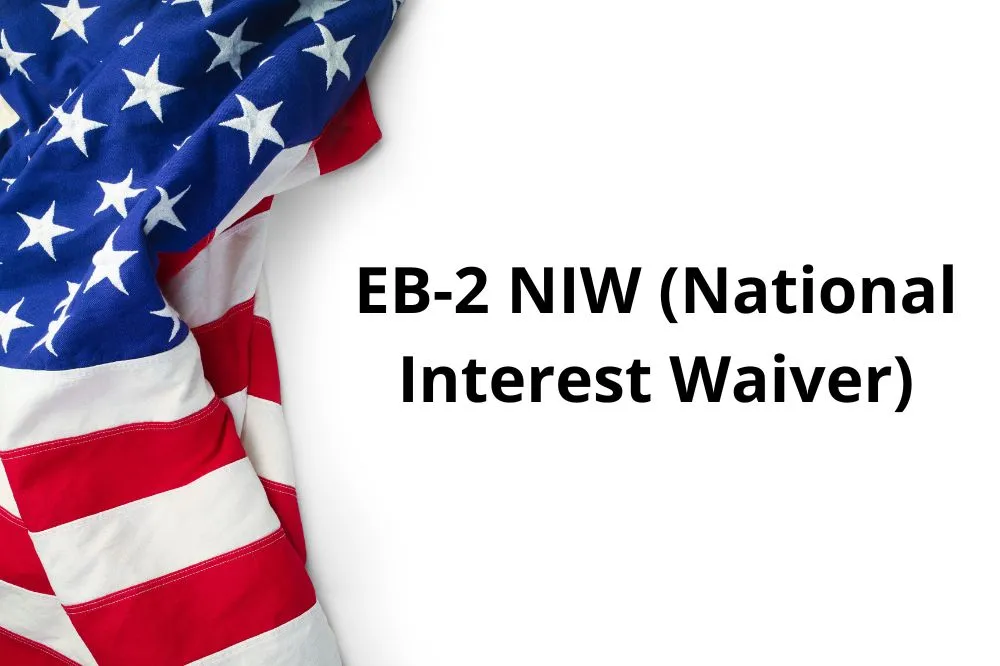EB-2 NIW (National Interest Waiver): A Complete Guide for Skilled Professionals

Contents
show
Who Qualifies for the EB-2 NIW?
To be eligible for an EB-2 NIW, applicants must meet the following criteria:
- Hold an advanced degree (Master’s, Ph.D., or equivalent) or demonstrate exceptional ability in their field.
- Show that their work has substantial merit and national importance.
- Prove they are well-positioned to advance their proposed endeavor in the U.S.
- Demonstrate that waiving the job offer and labor certification is in the national interest.
Why Choose the EB-2 NIW Over the Standard EB-2?
Unlike the traditional EB-2 visa, which requires an employer sponsor, the NIW allows for self-petitioning. This is particularly beneficial for:
- Independent researchers
- Entrepreneurs
- Specialists in fields with national significance
Eligibility Requirements
You must meet at least three of the following to qualify:
- Hold an advanced degree relevant to your field.
- Demonstrate exceptional ability through awards, publications, or high earnings.
- Prove your work holds national importance.
- Show contributions that go beyond typical standards in your field.
- Indicate a shortage of qualified U.S. workers in your area of expertise.
EB-2 NIW Application Process
- File Form I-140: Immigrant Petition for Alien Worker.
- Submit Supporting Evidence: Degrees, recommendation letters, publications, and proof of national impact.
- Request the NIW: Explain why waiving the job offer benefits the U.S.
- File Form I-485: Adjustment of Status (if already in the U.S.).
Key Documents for EB-2 NIW Petition
- Academic Credentials: Degrees, diplomas, transcripts.
- Detailed Resume/CV: Summary of achievements and experience.
- Evidence of National Impact: Publications, patents, media coverage.
- Letters of Recommendation: Endorsements from industry experts.
- Proof of Ongoing Work: Research projects, job offers, or business plans.
- Completed Forms: I-140, passport copy, and supporting identification.
How USCIS Evaluates EB-2 NIW Cases
USCIS uses a three-part test from the Matter of Dhanasar decision:
- Substantial Merit and National Importance: Evidence such as publications, patents, or economic impact.
- Well-Positioned to Advance Your Field: Past achievements and ongoing work.
- Waiving the Job Offer Benefits the U.S.: Proof that skipping labor certification serves national interest.
Common Reasons for Denial
- Lack of clear national importance.
- Generic or weak recommendation letters.
- Insufficient proof of future contributions in the U.S.
Successful EB-2 NIW Examples
- Research Scientist: Ph.D., multiple peer-reviewed papers, nano-robotics focus, 8 recommendations.
- Wildlife Conservationist: Ph.D. candidate, 5 publications, 20+ presentations, media recognition.
- Software Engineer: Built tools for plant research, improved national research infrastructure.
- Clean Energy Expert: Developed greenhouse gas tech, received federal funding, showed economic impact.
Common Mistakes to Avoid
- Weak National Interest Argument: Lack of specific examples and benefits.
- Poor Supporting Evidence: Vague documentation, missing achievements.
- Unclear Petition Letter: Generic language, poor structure.
- Incorrect Forms: Using outdated versions or missing signatures.
- Weak Recommendations: Letters without credible or detailed support.
- Lack of Future Impact: No proof of continued contributions.
- Ignoring RFEs: Incomplete or inadequate responses to Requests for Evidence.
Eligibility Self-Assessment
Answer these questions to determine if you’re a strong candidate for EB-2 NIW:
- Do you hold an advanced degree (Master’s, Ph.D., or equivalent)?
- Have you demonstrated exceptional ability through achievements?
- Does your work have national importance in the U.S.?
- Are you well-positioned to advance your field?
- Would waiving the job offer benefit the U.S.?
If you answered “Yes” to all five, you are likely a strong candidate.